For an issue on craft, let’s start at the end where it all comes together. Ecotone, a journal of place, concludes with contributors offering a single sentence on what craft means to them. Contributor Emily Larned says, “Craft shows us how to live: deliberately, conscientiously, mindfully, and as well as we possibly can.” Ecotone publishes authors and artists whose words are deliberate, whose language and choices are mindful and precise in communication.
NewPages Blog
At the NewPages Blog readers and writers can catch up with their favorite literary and alternative magazines, independent and university presses, creative writing programs, and writing and literary events. Find new books, new issue announcements, contest winners, and so much more!
Ecotone – Fall/Winter 2017
Spread the word!
Willow Springs – Spring 2018
Aqua, white, and yellow, the cover of Willow Springs 81 is built around Chris Bovey’s silkscreened “Garbage Goat,” a tribute to a local Spokane bovidae. The colors, the image, the typography itself evince freshness, a liveliness that portends well for the content within. Published twice yearly, Willow Springs is funded in part by the MFA program at Eastern Washington University, though its contributors come from all over the country.
Spread the word!
subTerrain – Winter 2017
The Winter 2017 issue of subTerrain provides a change of perspective through its Canadian west coast view of fiction, poetry, commentary, art, and book reviews. The subtitle, “Strong Words for a Polite Nation,” piques the reader’s interest, but it may depend on where the reader is sitting. As a Michigander, I can vouch for the politeness of our Canadian neighbors. And, yes, some of this most recent issue will offend some readers, but aside from an opinion writer who believes four-letter words add shock value, there is only a poetry collection that might take someone aback.
Spread the word!
Interview :: John Taylor of The Bitter Oleander
 The Spring 2018 issue of The Bitter Oleander features an in-depth interview with European Editor, poet and translator John Taylor. Editor and Publisher Paul B. Roth delves into a variety of issues and interests with Taylor, including influences on his writing; his bout with polio and interest in mathematics in his youth; the value of “slow” travel – trains being a particular favorite mode of transportation and thought/work space for Taylor; the situation of being an American writer living abroad and the concepts of ‘foreignness’ and ‘otherness’; and the “subtle positivity” of Taylor’s writings. The interview is accompanied by over a dozen pages of Taylor’s work.
The Spring 2018 issue of The Bitter Oleander features an in-depth interview with European Editor, poet and translator John Taylor. Editor and Publisher Paul B. Roth delves into a variety of issues and interests with Taylor, including influences on his writing; his bout with polio and interest in mathematics in his youth; the value of “slow” travel – trains being a particular favorite mode of transportation and thought/work space for Taylor; the situation of being an American writer living abroad and the concepts of ‘foreignness’ and ‘otherness’; and the “subtle positivity” of Taylor’s writings. The interview is accompanied by over a dozen pages of Taylor’s work.
Spread the word!
Lit Mag Covers :: Picks of the Week
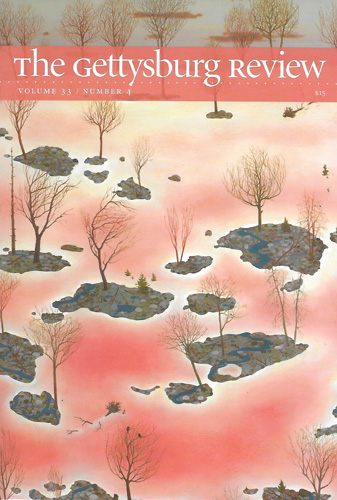
The Gettysburg Review Spring 2018 features the fun funky mixed media collage of Margaret Rizzio both on the cover and a full-color internal portfolio.
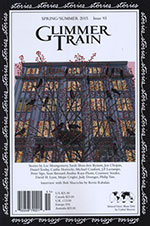
I love this Glimmer Train #102 cover image of fresh fruits. Though not the kind of tropical fruit we see here in Michigan, this makes me look forward to summer farmers markets. Cover art: “I Miss My Mother” by Jane Zwinger.

The bright sunshine adds to the summery feel of “White Door Bird” by Toni La Ree Bennett, a photo that spans both the front and back covers of the Winter 2018 Cimarron Review.
Spread the word!
2018 Bellevue Literary Review Prize Winners
Winners and Honorable Mentions of the 2018 Bellevue Literary Review Prizes can be found in the Spring 2018 issue:
Goldenberg Prize for Fiction
Selected by Geraldine Brooks
Winner: “Atrophy” by Lauren Erin O’Brien
Honorable Mention: “Full Buck Moon” by Sheryl Louise Rivett
Honorable Mention: “Bamboo Forest” by Faith Shearin
Felice Buckvar Prize for Nonfiction
Selected by Rivka Galchen
Winner: “Cancer, So Far” by Elizabeth Crowell
Honorable Mention: “Drawing Blood” by Laura Johnsrude
Honorable Mention: “The Reluctant Sexton” by Martha Wolfe
Marica and Jan Vilcek Prize for Poetry
Selected by Rachel Hadas
Winner: “Throat” by Gabriel Spera
Honorable Mention: “The Game of Catch” by Noah Stetzer
Daniel Liebowitz Prize for Student Writing
Winner: Nonfiction “Portraits” by Janna Minehart
The annual Bellevue Literary Review Prizes award outstanding writing related to themes of health, healing, illness, the mind, and the body. The next contest will close on July 1, 2018.
Spread the word!
Jack Underwood On Poetry and Uncertain Subjects
 “If a poem works it’s because you’ve made it such that other people might participate in making it meaningful, and this participation will always rest on another person’s understanding of the poem and its relationship to a world that is not your own. Your own understanding of the poem will evolve over time too, as you reread it in light of your changing world, just as you will find the world altered in light of the poem you wrote to understand a small uncertain corner of it. With poems, you never get to settle on a final meaning for your work, just as you never get to feel settled, finally, as yourself.”
“If a poem works it’s because you’ve made it such that other people might participate in making it meaningful, and this participation will always rest on another person’s understanding of the poem and its relationship to a world that is not your own. Your own understanding of the poem will evolve over time too, as you reread it in light of your changing world, just as you will find the world altered in light of the poem you wrote to understand a small uncertain corner of it. With poems, you never get to settle on a final meaning for your work, just as you never get to feel settled, finally, as yourself.”
From On Poetry and Uncertain Subjects: Learning from the unknown by Jack Underwood in the May 2018 issue of Poetry. Read the rest here.
Spread the word!
EJ Koh Love Letters
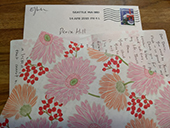 Last month, DM O’Connor reviewed EJ Koh’s collection of poems Lesser Love. In addition to being selected winner of the Pleiades Press Editors Prize for Poetry in 2017, O’Connor offers this praise: “It is clear that each page stands alone as an example of true contemporary poetry. It is clear you should buy this book, memorize all the poems, then give it to a friend who need to be affirmed that poetry is far from dead.”
Last month, DM O’Connor reviewed EJ Koh’s collection of poems Lesser Love. In addition to being selected winner of the Pleiades Press Editors Prize for Poetry in 2017, O’Connor offers this praise: “It is clear that each page stands alone as an example of true contemporary poetry. It is clear you should buy this book, memorize all the poems, then give it to a friend who need to be affirmed that poetry is far from dead.”
At the close of the review, O’Connor notes that Koh will even write love letters to her readers, just for the asking. Intrigued, I visited her website, where she states, “I am writing a thousand love letters to strangers by hand.”
Her July 26, 2016 blog post entitled, “It’s Okay, I Love You” explains how she came to this task, beginning the entry with:
“The past nine months, my life has become unrecognizable. When I say this out loud, it means who I am is unrecognizable. But I now see myself for the first time.
“In February, I hoped to write again; beginning was also deciding. I’d once said, ‘I’m sick of writing because I’m sick of myself.’ To be kinder towards my person, I didn’t go back to that place. On a Friday evening, I was pressed for new perspective. I decided to handwrite a thousand love letters.”
She goes on to explain why the handwriting, why the love – which seems it needs less explaining in our current world that feels imbued with endless hate.
So, I wrote to EJ. I sent her an e-mail, including some details about myself, as she requests, “& add a struggle,” which I did. A couple weeks later, I received a hand-addressed envelope postmarked from Seattle. By then, I had forgotten about my request, and didn’t know EJ was on the west coast, so I was pleasantly surprised to open the envelope and find a two-page, handwritten “love letter.” Mine was numbered 62, and included thoughtful commentary and insight gleaned from information I had shared with her, including my struggle.
A love letter? If love means reaching out to a total stranger, to recognize the work they do, what they care about and what they are struggling with; to treat someone with concern and care and affirmation; to not judge and to just be kind and share in someone’s perspective with seriousness and some humor – then yes. This was the best love letter I’ve ever received.
What a difference writers can make in another person’s life. And all it takes is who we are and what we have, shared with another. So simple, so (nearly) free, and yet – so profound.
My thanks to EJ. I hope others who share in this experience have as great an appreciation. May we all “promise to notice our light every day.”
Spread the word!
Big Stories :: Small Size :: Delivered Monthly
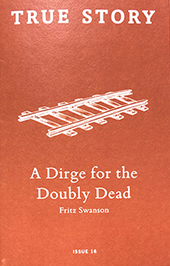 From the creators of Creative Nonfiction magazine, True Story provides a monthly home for longform (5000-10000 words) nonfiction narratives. This pocket-sized publication showcases one exceptional essay by one exceptional author at a time. Are you perhaps the next exceptional author to be featured? True Story is looking for a wide variety of voices, styles and subjects, and of course, readers who would enjoy the same. Subscriptions offer this gem delivered to your mailbox each month – perfect for your beach bag and road trip packing. And not just for you, True Story would be a fabulous gift for the readers in your life. For less than a date to the movies, you can send someone True Story for a year. Also available (for even less!) on Kindle. Just want to sample it? There’s a grab bag of back issues available here.
From the creators of Creative Nonfiction magazine, True Story provides a monthly home for longform (5000-10000 words) nonfiction narratives. This pocket-sized publication showcases one exceptional essay by one exceptional author at a time. Are you perhaps the next exceptional author to be featured? True Story is looking for a wide variety of voices, styles and subjects, and of course, readers who would enjoy the same. Subscriptions offer this gem delivered to your mailbox each month – perfect for your beach bag and road trip packing. And not just for you, True Story would be a fabulous gift for the readers in your life. For less than a date to the movies, you can send someone True Story for a year. Also available (for even less!) on Kindle. Just want to sample it? There’s a grab bag of back issues available here.
Spread the word!
New Lit on the Block :: SWWIM Every Day
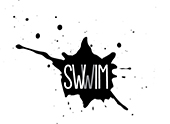 What better way to usher in summer than to introduce SWWIM Every Day? SWWIM actually stands for Supporting Women Writers in Miami, and although it retains its origin’s namesake, everyone is invited to enjoy the international reach of contributors included in this daily online publication of poetry by women, women-identifying and femme-presenting writers. Continue reading “New Lit on the Block :: SWWIM Every Day”
What better way to usher in summer than to introduce SWWIM Every Day? SWWIM actually stands for Supporting Women Writers in Miami, and although it retains its origin’s namesake, everyone is invited to enjoy the international reach of contributors included in this daily online publication of poetry by women, women-identifying and femme-presenting writers. Continue reading “New Lit on the Block :: SWWIM Every Day”
Spread the word!
Playing Monster :: Seiche
Diana Arterian presents a force of nature in her debut, full-length poetry collection Playing Monster :: Seiche. Formed after its namesake, seiche, the book plows ahead, a standing wave, a constant, nonbreaking push forward. Throughout the pages, Arterian writes with insight and honesty while weaving together the story of her family’s abuse at the hands of her father, and a period of her mother’s life in which strange men suddenly appeared with the sole goal of threatening her.
Spread the word!
Apocalypse, Darling
Unfamiliar with Barrie Jean Borich’s previous works, I decided to forgo my usual research concerning the author’s expertise and dive into reading Apocalypse, Darling right away. Peeking inside just to get a taste of her writing, I suddenly found myself unable to stop reading despite my previous plans for the evening. Just like the author, “I almost forget we have some place to be,” so I cancelled my plans to explore Borich’s world of “the beautiful wastelands.”
Spread the word!
This Much I Can Tell You
Winner of two NEA fellowships, a Pushcart Prize, and an award from the Academy of American Poets, David Rigsbee is a seasoned American poet who has published ten books of poetry, multiple chapbooks, and a few translations over the past forty years. The poems in Rigsbee’s newest collection, This Much I Can Tell You, are as circumspect in language as they are in dispensing an immediate and experiential wisdom, as the book’s title implies.
Spread the word!
A Bag of Hands
Best not to imagine your love dead
or to put literature ahead of life.
Best not to write certain things down.
—from “Cartas de Amor”
If forced to write a narrative log-line for Mather Schneider’s A Bag of Hands, Rattle Poetry’s 2017 Chapbook Prize selection, it would be simple: Cab driver marries Mexican, life ensues. But that is veneer.
Spread the word!
And So I Was Blessed
When a child crosses a border, either towed by parents or not, a lifelong search for identity begins. This dual-identity is doubly complicated when war and political policies have put that culture through hell. Bunkong Tuon’s collection And So I Was Blessed is an exploration of the journey of a new father, a college professor, and an American of Cambodian descent who travels through Asia.
Spread the word!
Boulevard 2017 Emerging Poet
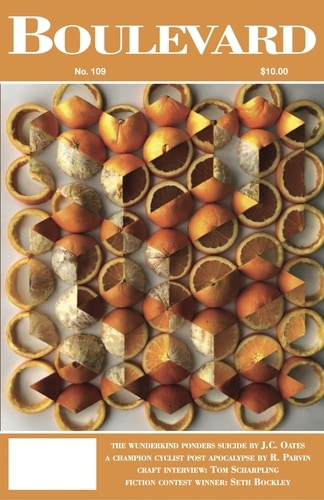 Three poems by Elizabeth Hoover, winner of the Boulevard 2017 Poetry Contest for Emerging Poets, as selected by Contest Judge Edward Nobles, are featured in the newest Spring 2018 issue. Works by honorable mention poets Lea Anderson and Elizabeth Eagle are also included.
Three poems by Elizabeth Hoover, winner of the Boulevard 2017 Poetry Contest for Emerging Poets, as selected by Contest Judge Edward Nobles, are featured in the newest Spring 2018 issue. Works by honorable mention poets Lea Anderson and Elizabeth Eagle are also included.
This annual contest awards $1,000 and publication for the winning group of three poems by a poet who has not yet published a book of poetry with a nationally distributed press. The current contest is open until June 1, 2018.
Spread the word!
2017 Robert Watson Literary Prize Winners
 The Greensboro Review Spring 2018 issue features the winners of The Robert Watson Literary Prizes:
The Greensboro Review Spring 2018 issue features the winners of The Robert Watson Literary Prizes:
Eli Cranor for his story, “Don’t Know Tough”
Alison Powell [pictured] for her poem “from The Book of Revelation”
This annual contest awards $1000 for both fiction and poetry as well as publication and closes each year on September 15.
Spread the word!
MQR Explores Poetry at Michigan
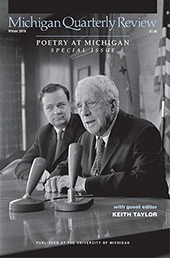 The most recent issue of Michigan Quarterly Review (Winter 2018) opens with Associate Editor Keith Taylor’s “What is Found There: Poetry at Michigan,” commenting on this issue’s special feature. He recounts the Spring 2017 200th anniversary celebration at University of Michigan, which included a day-long conference entitled “Poetry at Michigan.” This was a “continuation of two symposia done over the previous few years: one on Theodore Roethke, and the other focising on Robert Hayden and his work.”
The most recent issue of Michigan Quarterly Review (Winter 2018) opens with Associate Editor Keith Taylor’s “What is Found There: Poetry at Michigan,” commenting on this issue’s special feature. He recounts the Spring 2017 200th anniversary celebration at University of Michigan, which included a day-long conference entitled “Poetry at Michigan.” This was a “continuation of two symposia done over the previous few years: one on Theodore Roethke, and the other focising on Robert Hayden and his work.”
This issue of MQR has now become the even larger discussion of poets and their connections to UofM, including: Donald Hall, “an important professor” at UofM for almost twenty years; an unpublished interview with Seamus Heaney “a regular visitor for almost a quarter of a century, both before and after his Nobel Prize”; Francey Oscherwitz, and undergraduate at the university thirty-five years ago; Hannah Webster, “a recent graduate of the Zell Writing Program,” who “writes about her experience with the Prison Creative Arts Project,” including works from Michigan prison students; and Bob Hicock, not a UofM grad, but who lived in Ann Arbor for some twenty years, has contributed “a provocative essay on the necessary and inevitable changes happening in contemporary American poetry.”
Spread the word!
New Lit on the Block :: Angry Old Man
“Anger is an energy, according to Johnny Lydon. Who am I to argue?” comments Drew B. David, sole editor and “energy” behind Angry Old Man, a new print and online quarterly publishing all textual and visual forms, with mixed media (or intermedia) especially encouraged. Angry Old Man is a lit mag dedicated to textual-visual hybridization and true aesthetic experimentation. Continue reading “New Lit on the Block :: Angry Old Man”
Spread the word!
American Literary Review – Spring 2018
The American Literary Review has been publishing well-crafted creative writing for nearly thirty years. In 2013, the journal published its final print issue and moved to an online format where it continues the tradition of providing exceptional writing to readers with an even more accessible format.
Spread the word!
The MacGuffin – Winter 2018
The MacGuffin is the perfect literary companion. Published three times per year out of Michigan’s Schoolcraft College, The MacGuffin doesn’t overload its issues, and its solid selection of poetry, fiction, and creative nonfiction carefully placed to compliment the flow of subject or imagery speaks to the editorial care behind this quality production.
Spread the word!
Booth – 2018
Booth 11, the Women Writers issue, began, arguably, with male tears. In his introductory letter, Editor Robert Stapleton details an email he received after the 2015 Booth Poetry Prize shortlist was announced, in which a particularly entitled male noted: “Eight of your ten finalists are women. Is this gender bias or chance?” Stapleton kept his cool, explained the process dispassionately, and used the experience for growth. Prior to that email, he notes, two-thirds of the editorial staff at Booth had been men. Since then, the numbers have balanced as more than half of the journal’s editorial positions have been filled by women. Stapleton realized there was more he could do. “American history is dominated by the patience of women,” he writes, “and the world of American publishing, a garden of so much culture and progressive thought, should have been leading this charge long ago.”
Spread the word!
Crazyhorse – Fall 2017
After hungrily reading each word of the featured works published on the Crazyhorse website, I was more than excited to get my hands on the entire Fall 2017 issue. Through Shane Brown’s “Blue Hole,” a cover art piece, I fell into the wonderland of prose and poetry. Jonathan Bohr Heinen, the managing editor, notes that “art isn’t some frivolous reflection of aimless escape.” While this issue’s pieces take us on a journey, they nevertheless offer a reflection of reality. As Heinen puts it, “It’s the light that shines so brilliantly and helps us make sense of the world we inhabit. It’s truth.” The editor’s insight offers an entry point for readers as they carefully tread the pages of the 92nd issue seeking “the light.”
Spread the word!
Poetry Northwest – Winter & Spring 2018
“You should read while you can,” urges the speaker in Luke Brekke’s poem “Bottom’s Poetics.” This issue of Poetry Northwest offers a number of wonderful pieces that can make any reader appreciate the opportunity to read. Staying true to their mission, the Winter & Spring 2018 issue entices its readers with “the promise of discovery” as it presents both poetry and visual art. The editors Aaron Barrell and Erin Malone note that this issue offers “a communion of eye and ear.” Indeed, careful readers have the opportunity to immerse themselves in a hybrid of visual and textual formats such as poetry comics by Bianca Stone, Colleen Louise Barry, and others.
Spread the word!
Brick – Winter 2018
Brick’s 100th issue celebrates forty years of nonfiction. An international journal published out of Toronto, Brick “prizes the personal voice and celebrates life, art, and the written word.” In issue 100, the authors look out into the world, to literature, to poetry and to nature for inspiration, while grounding their insights in the personal. Brick is a love letter to our artistic influences.
Spread the word!
AGNI – Number 86
Celebrating its 45th year in publication, AGNI, published out of Boston University, takes its name from the Vedic god of fire, the guardian of humankind. AGNI’s fiction, nonfiction, and poetry are a fire in the darkness, illuminating the corners of reality we do not see.
Spread the word!
The Baltimore Review – 2017
I barely knew how to start with the 2017 edition of The Baltimore Review. It is huge. There are 325 pages of poetry and prose, a culmination of four online issues from Summer 2016 to Spring 2017. A little history in the Editor’s Note gave me a better sense of what I was delving into. The Baltimore Review has been around since 1996 and became an independent nonprofit organization in 2004. Though based in the Baltimore area, the journal accepts work from anywhere, and publishes online to a vast audience. There is such a wide variety of voices in the fiction pieces. There are stories about ballet dancers, dogs, gardeners, a young girl in Hawaii caring for her grandfather, an imagining of the future of online avatar use. The journal also feels current. The cover is a gorgeous painting by Sughra Hussainy featuring a self-portrait obscured by the zipped lip emoji, a statement about how women are often told to remain silent, even now. The Baltimore Review is not a place for silence. It’s a raucous collection of talented voices, passionate about a wide range of topics. It’s 325 pages of fresh new work.
Spread the word!
PULP Literature – Autumn 2017
I absolutely loved the August 2017 issue of PULP Literature! If the quality of the short stories within this issue is any indication of the overall quality of the publication, then I cannot wait to pick up the next issues! PULP Literature contains everything I love in short stories and novellas from my favorite genres of fiction: science fiction, fantasy, mystery, history, thriller, and chiller.
Spread the word!
Black Warrior Review 2017 Contest Winners
The Spring/Summer 2018 issue of Black Warrior Review features the winners of their annual writing contest:
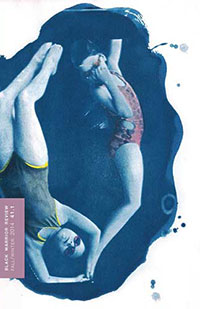 Nonfiction Contest Winner
Nonfiction Contest Winner
Judge: Hanif Willis-Abdurraqib
“The Best Lighting for My Body Was at the White Horse Inn and Bar, Oakland, California” by Tony Wei Ling
Flash Prose Contest Winner
Judge: Joyelle McSweeney
“Auto-Da-Fé: Confession And Camouflauge” by M.J. Gette
Fiction Contest Winner
Judge: Nicola Griffith
“The World Holds What It Remembers Most” by Tess Allard
Poetry Contest Winner
Judge: Rachel McKibbens
“From a Poet to her Rumbero” by Sarah María Medina
Cover Art: “Undomesticated Interior No. 7” by Lisa Krannichfeld
Spread the word!
Celebrate National Poetry Month with NWP
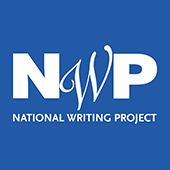 Every year, the National Writing Project selects five outstanding student writers, grades 10 and 11, who have received a national Scholastic Art & Writing Award for poetry. These Student Poets are invited to share in a conversation and read their poetry. This year’s event, NWP Radio – A Conversation with National Student Poets, will take place Thursday, April 12 at 4:00 p.m. PDT / 7:00 p.m. EDT. The audio for event will be available the day of on the NWP Radio page along with their full archive of NWP Radio programs.
Every year, the National Writing Project selects five outstanding student writers, grades 10 and 11, who have received a national Scholastic Art & Writing Award for poetry. These Student Poets are invited to share in a conversation and read their poetry. This year’s event, NWP Radio – A Conversation with National Student Poets, will take place Thursday, April 12 at 4:00 p.m. PDT / 7:00 p.m. EDT. The audio for event will be available the day of on the NWP Radio page along with their full archive of NWP Radio programs.
Spread the word!
Who Wouldn’t Love a Journal Each Month?
 Journal of the Month is an incredible resource for writers, readers, teachers, students, librarians – does that leave anyone out?
Journal of the Month is an incredible resource for writers, readers, teachers, students, librarians – does that leave anyone out?
As a general subscriber, you will receive a new literary journal by the tenth of each month, never receiving the same publication twice during your subscription. If you already subscribe to some journals, you just let them know, and they will choose others for you. Yes, there are human beings making these selections, not automated machines!
For teachers, Co-Founder Jenn Scheck-Kahn (aka one of the humans behind this marvelous enterprise), will work with you to select four magazines you’d like to teach. Each student will then receive one publication a month – based on a delivery schedule you develop together, so that the publications arrive in advance of when you plan to teach them. Instructors receive a free set of the copies they plan to teach. Now is the time to plan those readings for the next school year!
Journal of the Month is a super easy gift idea! If you have writers or readers on your holiday or birthday list, what better way to support their interests!
Subscribers can select from 4, 6, 8, 12, and even 24 months.
Try it! See if you like it (how could you not?!), then sign up for more!
Spread the word!
FIELD Magazine Retires
 FIELD Magazine Editor David Young writes:
FIELD Magazine Editor David Young writes:
“As FIELD 98, our Spring 2018 issue, arrives, it’s time to let you know that just two more numbers are scheduled: #99, Fall 2018, and #100, Spring 2019. Many have expressed dismay at learning that FIELD will close down, but both David Walker and I feel the need to free ourselves from the burden of editorship. Nobody thought, when the magazine began in 1969, that it would last this long and become such an institution. All good things eventually terminate, however, and fifty years and one hundred issues make for good round numbers.

“We’re hoping to organize a farewell event at next year’s AWP meeting. Meanwhile, we’re very grateful to our fellow editors, our contributors, and our subscribers for their support and enthusiasm. Also, of course, to Oberlin College for its hospitality. It isn’t easy to say goodbye. Thank you for caring and for loving FIELD all these many years.”
Thank you David Young (top photo), David Walker, and all the staff, writers, and readers through the years who helped make FIELD a vital voice in our literary community.
Spread the word!
Under Dark Waters
I still remember being in awe as I first learned about the RMS Titanic in grade school. I pored over books with clear pages I could peel away to reveal the layers of the giant ship, I unsuccessfully tried to imagine the wonder the public felt at the size of the ship with its pool and gym and cargo and grand staircase, and I repeatedly played through the 1996 PC game, Titanic: Adventure Out of Time, that takes place onboard. Despite all of this, there was still always an incomprehensible aspect to it—the ship, accident, and amount of lives lost. With years between its existence and my own and with games and movies made about the tragic event, there was something “unreal” about the Titanic. That’s where Anna M. Evans comes in.
Spread the word!
The Science of Lost Futures
When first opening The Science of Lost Futures, I was already familiar with some of Ryan Habermeyer’s works, so I knew what to expect. Or so I thought. Habermeyer’s mysterious fiction defied all my expectations. This collection of stories pulled me into the strange world where a woman can turn into a snow leopard, people admire a giant foot, and turkeys take over a house. These strange occurrences, however, become fantastic circumstances for Habermeyer to explore human relationships. In this collection of witty stories, Ryan Habermeyer places humans in bizarre and sometimes absurd conditions which creates a rich world with relationships at its center.
Spread the word!
A Lesser Love
If I can own anyone
I ask for noneunlike orchids that cannot
grow unless paired.I don’t know.
I remember you lovedto swim. Everything I am
become water
—“Madrona”
Spread the word!
Critical Assembly
John Canaday’s newest book of poetry, Critical Assembly: Poems of the Manhattan Project, easily reads like a story about an era of American history that impacted the entire world. The Manhattan Project, code name for creation of atomic bombs during World War II, referred to the New York City borough where the project’s headquarters were located. The bombs, however, were assembled in New Mexico at the Los Alamos Laboratory and tested in a desert near Alamogordo, New Mexico, in 1945.
Spread the word!
And Then Snow
By some stroke of luck, I had Philip Sterling’s new book with me as I laid in bed, sick from the change in altitude after arriving in Bogota, Colombia. As I choked down saltines and felt sorry for myself, these self-effacing, wise, and often revelatory poems delivered me from myself for a few hours. Continue reading “And Then Snow”
Spread the word!
Record of Regret
Dong Xi, author of the novel Record of Regret, began submitting writing to Chinese magazines when he was fifteen, according to the novel’s translator Dylan Levi King. Since then, Dong Xi, the pen name of Tian Dailin, has written four novels and is a writer in residence at Guangxi University for Nationalities, China.
Spread the word!
Lit Mag Covers :: Picks of the Week
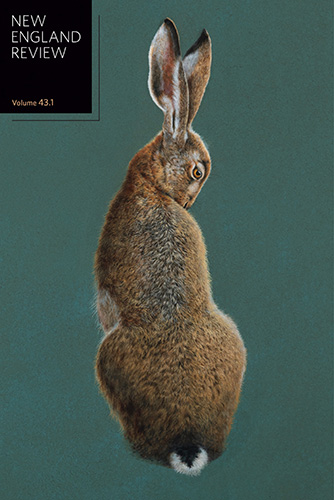
Monolith by Jeanne Borofsky on the cover of Volume 29 Number 1 2018 welcomes readers to the party celebrating New England Review‘s forty years of publication.
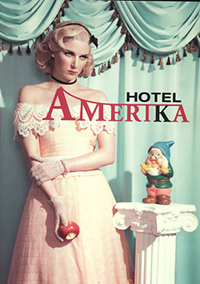
Kourtney Roy‘s pouting princess portrait entitled “Mythology” from autopotraits I is an intriguing cover choice for Hotel Amerika‘s Spring 2018 issue.
Croatian-born artist Moondrusannah’s artwork, featured in the online 8.1 issue of New Delta Review, is from her Illustrated Dreams Diary, of which she says, “Any clue to What Girls Really Dream About? I’m just starting to find that out myself, and I like what I see.”
Spread the word!
National Poetry Month 2018
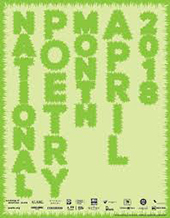 Join in National Poetry Month celebrations!
Join in National Poetry Month celebrations!
While supplies last, you can request a free copy of the 2018 National Poetry Month poster from the Academy of American Poets, designed by AIGA Medal and National Design Award-winning designer Paula Scher. The design celebrates typography and is suggestive of concrete poetry and Walt Whitman’s Leaves of Grass.
April 26 is Poem in Your Pocket Day. Carry a poem with you and share it with others! The Academy of American Poets provides a PDF Guide to Celebrating Poetry in Schools, Communities & Businesses, which includes a selection of pocket-sized poems (also cellphone, snapshot sized). Carry and share!
Teach This Poem features a poem each week from the Academy’s online collection accompanied by commentary and interdisciplinary resources and activities. Good for K-12 as well as early college.
Dear Poet Project invites grades five through twelve (Common Core lesson plan available) to write letters in response to poems written by poets connected with the Academy of American Poets. Deadline: April 30, 2018 for consideration for publication on Poets.org in 2018 as well as select letters receiving a response.
ReadWriteThink, the educational resource partnering with National Council of Teachers of English and International Literacy Association, provides classroom activities, websites, and related resources for teachers and parents of K-12 students.
The Poetry Foundation, publisher of Poetry, is all online all the time, providing poetry, poet biographies, news and educaitonal resources for all levels.
Reading Rockets, the national multimedia project from WETA Public Broadcasting, has a full page of resources: Poets on Poetry videos; Learning Through Poetry links to resources and organizations; Poetry Booklists; Video interviews with children’s poets; ideas for librarians; and a full list of activities.
American Life in Poetry features a weekly poem with brief commentary from Poet Laurate of the United States 2004-2006 Ted Kooser. Print and online news sources can sign up to reprint the columns.
NaPoWriMo, or National Poetry Writing Month, is an annual project in which participating poets attempt to write a poem a day for the month of April. Best to sign up early, but check it out this year to prepare yourself for next!
Spread the word!
New Lit on the Block :: Iron City Magazine
 If this data shared by Iron City Magazine doesn’t startle or sadden you, then you need to get woke: “The U.S., with less than 5% of the world’s population, has more than 20% of its prisoners, more people by raw number than any other nation in the world, regardless of size. Given that 1 in 135 Americans lives behind bars, U.S. prison complexes are like vast cities. If they were made into a state, it would be the 36th most populated.”
If this data shared by Iron City Magazine doesn’t startle or sadden you, then you need to get woke: “The U.S., with less than 5% of the world’s population, has more than 20% of its prisoners, more people by raw number than any other nation in the world, regardless of size. Given that 1 in 135 Americans lives behind bars, U.S. prison complexes are like vast cities. If they were made into a state, it would be the 36th most populated.”
Iron City Magazine: Creative Expressions By and For the Incarcerated is an annual online and print journal devoted entirely to writing and art from the prison world, and one that we should all be reading. The name, Iron City Magazine ’s Marketing Editor Jacqueline Aguilar tells me, comes from the image the word “prison” conjures in most of us: “Even though most prisons are chiefly nowadays made of concrete more than iron, it’s still the iron doors, iron bars, and razor wire that most resonate with our image of prison life.” Continue reading “New Lit on the Block :: Iron City Magazine”
Spread the word!
2018 Kalos Visual Art Prize Winners
Works by winners of the Ruminate 2018 Kalos Visual Art Prize can be viewed in the Spring 2018 issue, with a still from Eloisa Guanlao’s digital documentary Noli Me Tangere featured on the publication’s cover.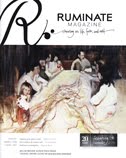
First Place
Eloisa Guanlao
Second Place
Janet McKenzie
Honorable Mention
Joseph Di Bella
Information about each of these selected artists and a full list of finalists can be found here.
Spread the word!
Creative Nonfiction Magazine Awarded AWP’s Small Press Award
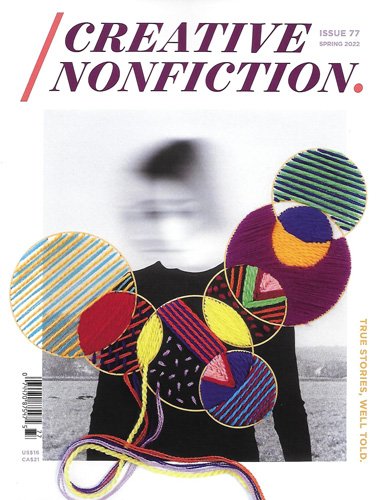 Pittsburgh-based literary magazine Creative Nonfiction is the winner of the 2018 Association of Writers and Writing Programs (AWP) Small Press Publisher Award. The prize was announced in Tampa, Florida, at an opening ceremony at AWP’s annual conference and bookfair, which brings together 11,000+ writers, teachers, and small-press publishers. The other finalists were Fence, the Normal School, and Terrain.org.
Pittsburgh-based literary magazine Creative Nonfiction is the winner of the 2018 Association of Writers and Writing Programs (AWP) Small Press Publisher Award. The prize was announced in Tampa, Florida, at an opening ceremony at AWP’s annual conference and bookfair, which brings together 11,000+ writers, teachers, and small-press publishers. The other finalists were Fence, the Normal School, and Terrain.org.
AWP’s Small Press Publisher Award is an annual prize for nonprofit presses and literary journals that recognizes the important role such organizations play in publishing creative works and introducing new authors to the reading public. The award acknowledges the hard work, creativity, and innovation of these presses and journals, and honors their contributions to the literary landscape through their publication of consistently excellent work. The award includes a $2,000 honorarium and a complimentary exhibit booth at the AWP Conference & Bookfair in the year following the recipient’s recognition. The prize is given to literary magazines in even years; Creative Nonfiction was a finalist in both 2014 and 2016.
Creative Nonfiction founder and editor Lee Gutkind said, “It’s really nice to be recognized in this way. Creative Nonfiction’s small staff is incredibly dedicated, and does so much with so little. And thanks go to our contributors—the writers and artists whose work makes the magazine possible. Twenty-four years ago, we brought the very first issue of Creative Nonfiction to this conference, and I was so nervous … but we sold every copy. So, thanks go to AWP, too, for all their support over the years.”
Creative Nonfiction is true stories, well told. Each issue of the quarterly features original essays and illustrations; writing that pushes traditional boundaries of the genre; notes on craft; micro-essays; conversations with writers and editors; and more. Almost every issue includes a writer’s first publication, and the editorial team emphasizes a thoughtful editorial process and rigorous fact-checking as vital elements of the organization’s overall educational mission. Visit creativenonfiction.org to learn more.
Spread the word!
Lit Mag Covers :: Picks of the Week
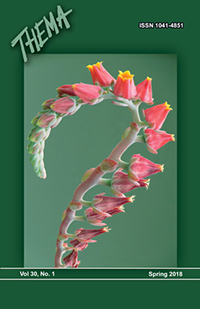
Thema‘s cover photo for their Spring 2018 issue is “Question the Answer” by Kathleen Gunton, appropriately fitting for the theme: “Is There a Word for That?” Perhaps not a word, but a beautiful image instead. Upcoming themes in search of submissions: “Where’s the food truck?” (July 1) and “The critter in the attic” (November 1).
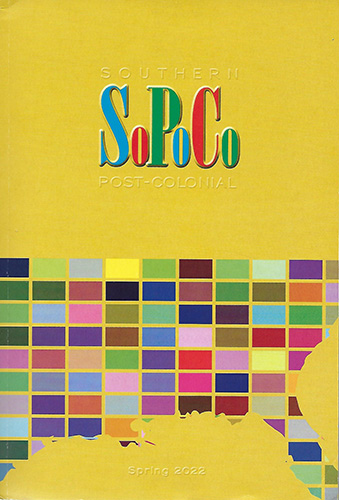
The cover and internal art portfolio of Georgia Review‘s Winter 2017 issue features a very different kind of garden life by sculptor Toshihiko Mitsuya: Aluminum. “Far from static,” Mitsuya says of his medium, “it takes on the feelings of its surroundings – the wind, the light an the hands that touch it.As a material, aluminum starts in a huge factory and ends in something precious yet transitive: the installation reclaims an industrial material back to nature.”

As unique as the vision through the cylindrical optic toy, Kaleidoscope is a publication “exploring the experiene of disability through literature and the arts.” Kristin Gehrmann’s “The Vial Keeper” reflects the Winter/Spring 2018 theme: Life’s Unpredicatbiilty. Now available open access online, readers unfamilar with this journal should defnitely check it out.
Spread the word!
R.T. Smith Prize for Narrative Poetry 2017 Winners
The most recent issue of Cold Mountain Review (v45 n2) features winners of the 2017 R.T. Smith Prize for Narrative Poetry:
 Winner
Winner
“We will Never Mend This” by Jeff Burt [pictured]
Read the beautifully heart-wrenching poem and hear it read by the author here.
Honorable Mention
“A Sestina for Traveling Season” by Geetha Iyer
“To Shadow” by Matthew Winberley
Finalist
“Prologue” by Jude Whelchel
Spread the word!
Lit Mag Covers :: Picks of the Week
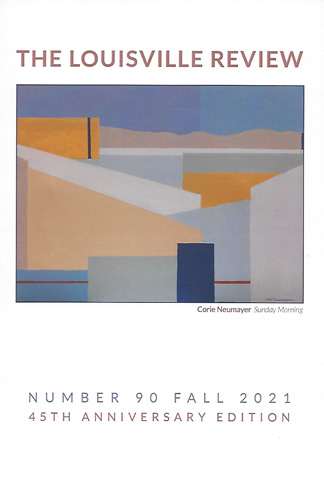
Gerald Plain’s photo “Spider Rock, Canyon DeChelly, Arizona” dizzying perspective draws readers into the newest issue of The Louisville Review (#82, Fall 2017). Inside, The Children’s Corner features high school sophomore Haemaru Chung’s poem “Waking Up.”
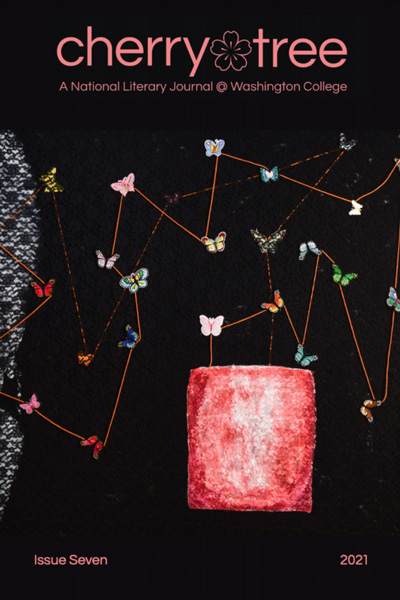
Looking forward to summer, I enjoy this cover image (also a bit dizzying) on issue four of Cherry Tree national literary journal published out of Washington College: “Children Running in Backlight (Dozza, Italy)” by Claudio Cricca.
The Art of Miss Fluff is featured in the Winter 2017-2018 issue of The Writing Disorder, and online quarterly of new and emerging writers and artists. Fluff is “an enchanting design brand created by artist, Claudette Barjoud.”
Spread the word!
Collateral Literary Journal – November 2017
I was fifteen-years-old when my brother enlisted in the Marine Corps and headed off to California for boot camp a few short weeks after his high school graduation. My cousin and then my aunt’s fiancé were the next to join, and before the three of them, it was my mother’s father and my great uncles. In a way, it has almost become a family affair to join the military, so reading online magazine Collateral Literary Journal felt like a welcoming and comforting experience—it is edited and filled with work by people who “get” the lifestyle. Each issue publishes voices from those touched by military service in poetry, prose, and art.
The fiction reads realistically, coming off almost as genuinely as nonfiction. “Homecoming” by E.M. Paulsen tackles the subject of PTSD when a soldier on leaves visits a laundromat and ends up frozen in fear when another patron’s child begins to choke on a cookie. Paulsen’s details put us in his shoes, stirring up the feelings of panic that can be triggered at any moment, even when you’re just innocently doing laundry.
After “The Ferry Back” by Morgan Crooks, Crooks reveals the fiction piece—featuring the complexities of a family relationship revolving around a military patch—”draws its conflict from personal experience: a war never truly ends, not within one lifetime or many.” Like Paulsen, Crooks writes with realism, the family interactions authentic.
With fiction so genuine and honest, one can expect the nonfiction to follow suit. Spoiler alert: it does. Kay Henry in “75 Years Later, What I Still Don’t Know” compares her life with her father’s seventy-five years earlier:
At 8:00 in the morning, I’m enjoying an ordinary breakfast outside on the front porch [ . . . ]. Except for a distant neighbor’s tractor, all is quiet.
Seventy-five years ago at this time of day, bombs began to fall on my father. Torpedoes began to hit his ship. [ . . . ] The U.S.S. Oklahoma, struck in the first minutes of the attack on Pearl Harbor, began to list. Young men began to die. My father was twenty-two.
She imagines him over and over, weaving between her life and his past: “Not to feel guilty or superior, nor to deepen my own sense of loss, but to see both days with more clarity. To know my young father. To bring him home.” By picturing this day and trying to put herself in his shoes, she is attempting to reach a greater understanding of the young man who experienced an incredible trauma, using writing to help achieve this.
Travis Burke utilizes a similar device in “Crawling Uphill,” the prose moving back and forth between present time in Portland and his past tour in Afghanistan. Burke repeatedly dreams of Massoud, an Afghan soldier friend who lost his life. Massoud and poppies haunt Burke, showing up again and again, in dreams and when awake. Massoud’s words stick with him: “An ant crawls uphill to go home.” And so Burke climbs a mountain as if climbing closer to home and the peace found there.
In “Dear Judith Wright” by Lisa Stice, the speaker wishes for peace for their daughter who keeps waking from nightmares, night after night. Stice gives her inspiration for the poem, explaining that she feels Judith Wright, who “wrote in support of the people with the least amount of power” would “empathize with the military children who are too young to really understand or express their feelings.” Stice’s speaker recycles Wright’s own words in an attempt to give some momentary peace and comfort: “it is only our past and future / troubling your sleep.” I remember my own nightmares from when I was a teen and my brother was overseas in Iraq. Much like the speaker’s child, I would wake up from dreams where I’d lose my brother in varying ways, unable to fully explain the fear and loss experienced in my dream world.
Tami Haaland’s “Noon Lockdown” is as timely as ever, especially after yesterday’s school walkouts protesting gun violence. A school is on lockdown, “men with guns / two floors down, swat teams, / nine police cars. We plan what to do.” Some students panic:
One is angry because
her mother failed to text love,
so I kiss her head as I would kiss
the heads of my own grown children.
The situation ends up being a misunderstanding. No one is in any real harm, and they’re all free to leave, the speaker visiting her own mother, “whose mind has turned / to lace.” The two sit together, the speaker not sharing the day’s events:
I hold her hand as if
there is nothing to say. [ . . . ]
I don’t
tell her a thing she will forget.
While the speaker offered comfort to her students when they needed it, she is left to quietly process on her own. Life goes on after the panic settles. Haaland has a new book coming out from Lost Horse Press next month: What Does Not Return. The distributor’s website says the collection “examines dementia and caregiving,” and if “Noon Lockdown” is any indication of the type of work one might find in the forthcoming book, it promises to be a thoughtful, skillfully written collection.
Art by Laura BenAmots accompanies the issue, pieces from “The Battle Portraits” collection staring out with emotive eyes. Readers can close out the issue with an interview with the artist along with full portraits from the series.
Collateral gives a personal, inside look into military and military-adjacent life. The journal offers community and comfort to those connected to military service, and for those living completely outside this lifestyle, Collateral still offers a welcoming, enlightening experience.
[www.collateraljournal.com]
Spread the word!
Swamp Ape Review – March 2018
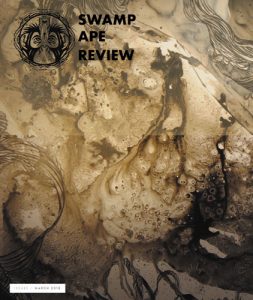
Founded last year at Florida Atlantic University, Swamp Ape Review has just dropped its second online issue. Issues are split into two sections, one featuring work by writers from South Florida, and the other featuring work from elsewhere. With the name Swamp Ape Review, one can’t help thinking of the weird and wild, and the editors don’t disappoint with their choices.
Spread the word!
Glimmer Train – Winter 2018
Glimmer Train is one of those lit mags, making frequent appearances on “best of” lists and respected by readers and critics alike. Its stories have been selected numerous times for the Pushcart Prize and The Best American Series, as well as the O. Henry Prize. This issue continues providing evidence for these honors.
Spread the word!
A Public Space – 2017
Founded in 2006 by Brigid Hughes, A Public Space is considered one of the finest literary journals in the country; its stories frequently grace the pages of The Best American Series and The Pushcart Prize, and its editor has won the PEN/Nora Magid Award for Magazine Editing. The mission of the journal is to “seek out overlooked and unclassifiable work, and to publish writing from beyond established confines,” which it certainly meets in Issue Number 26. This current issue features a syllabus for an architecture studio, an art manifesto, the transcript of a deliberately unreadable speech by editor and writer Gordon Lish, letters to Saul Bellow, an essay on audience and performance, a proposal for a new means of displaying art in museums, notes on Main Streets across the country, and a travel journal, among the usual fiction and poetry contributions.
